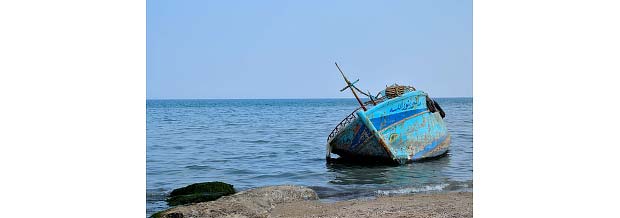Search
“Messy reality” of Europe’s migration crisis to be explored in panel discussion

Friday 12 January 2018
Press contact
A panel discussion at the Overseas Development Institute (ODI), to be broadcast live online, is aiming to shed light on the latest developments in the complex refugee and migration crisis in the Mediterranean.
Days after a fresh tragedy in which over 60 African migrants drowned – and up to 100 are missing – when a trafficker’s dinghy sank off the coast of Libya, international experts will discuss how global powers are responding to the crisis.
Veteran BBC journalist Kate Adie OBE will chair the event, with Professor Heaven Crawley, Coventry University’s chair in international migration and ODI senior research associate, and Dr Joanne Liu, international president of Médecins Sans Frontières (MSF), joining her on the panel.
The ODI’s Dr Jessica Hagen-Zanker and Syrian refugee and campaigner Ahmad Al-Rashid will also be part of the panel debate, which will begin at 18.00 GMT on Monday 15 January.
As part of the event, experts will explore the findings of the recent Guardian award-nominated ‘MEDMIG’ project, led by Professor Crawley and colleagues at Coventry University’s Centre for Trust, Peace and Social Relations (CTPSR) and the Universities of Birmingham and Oxford, and published in a new book – Unravelling Europe’s ‘migration crisis': journeys over land and sea.
Professor Crawley’s team report in the book that there were “flawed” and “deeply politicised” assumptions by European governments about the reasons why people moved, and that states were contributing to the crisis by blaming people smugglers – rather than conflict and human rights abuses in countries such as Syria, Libya, Iran, Eritrea and Afghanistan – for increased migration.
According to the findings, Europe’s failure to open up safe and legal routes to asylum, and a focus on border security, is driving demand for smugglers, who became the only option for those trying to enter countries which could offer protection.
Progress on the UN’s two parallel agreements – or ‘compacts’ – on refugees and migration respectively will be another point of discussion at the event, as leaders attempt to bolster international cooperation on the issues.
The latter – the Global Compact for Migration – recently suffered a setback when President Donald Trump withdrew the United States from the process.
Professor Heaven Crawley, chair of international migration at CTPSR, said:
We’ll be delving into the messy reality of refugee and migrant journeys, and trying to make some sense of a hugely complex situation that has confounded European governments.
While we’re seeing increasing recognition by some world leaders of the need to increase cooperation and share responsibility, there remains a desperate need to put aside the politics that often plague debate on these issues and focus on people’s rights.
Dr Jessica Hagen-Zanker, a research fellow leading ODI's migration research, said:
Our research at ODI shows that policies aiming to deter migrants from coming to Europe don’t work.
Instead of trying to keep people out, policymakers should be focusing efforts on managing migration better. That includes making journeys safer, offering legal migration pathways and creating a faster and better functioning EU asylum system.






